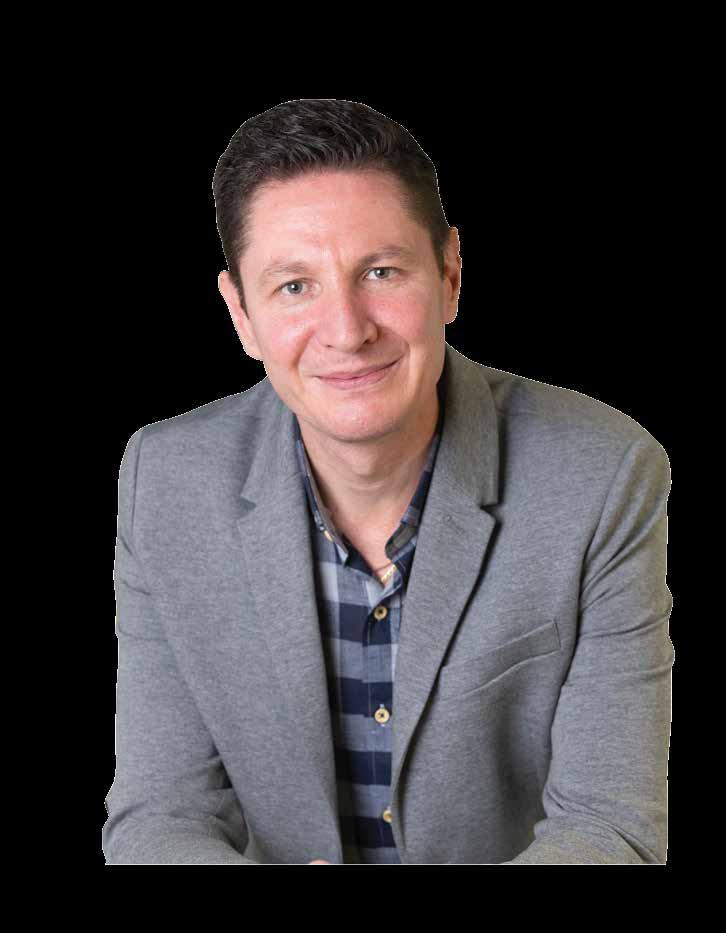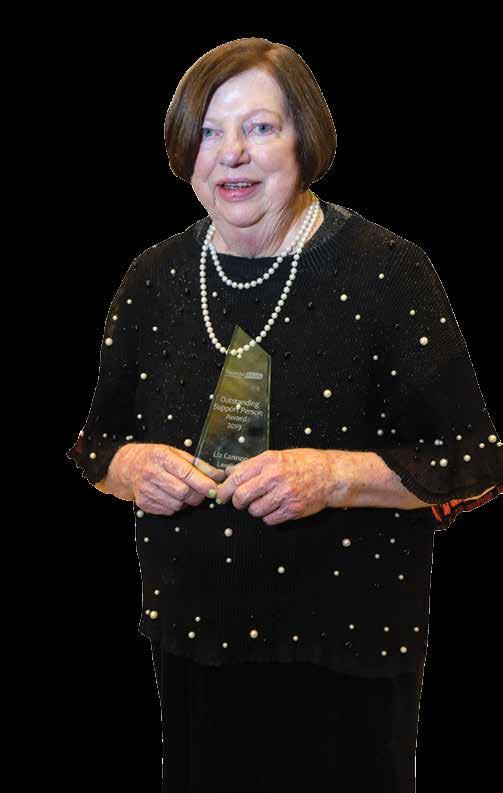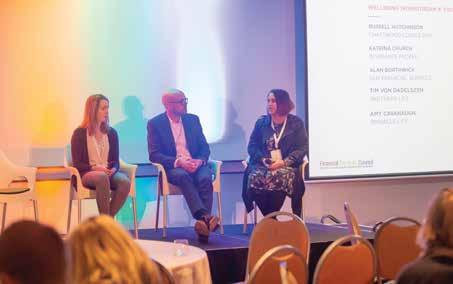
17 minute read
PERPETUAL GUARDIAN SPECIAL REPORT
from ASSET SEPTEMBER 2019
by ASSET
TRUSTS By Perpetual Guardian
New landscape for trusts
Perpetual Guardian general counsel Henry Stokes says new laws will be game-changing for the management of trusts.
For the first time since the 1950s, New Zealand trust law is being overhauled – and one of the country’s leading legal specialists says it’s going in the right direction, but financial advisers and other professional services providers who work as trustees will need to step up and move quickly to help their clients.
The new Trusts Act 2019, which comes into effect on January 30, 2021, replaces the Trustee Act 1956 and the Perpetuities Act 1964. The new Act aims to make trust law more accessible, to clarify and simplify core trust principles and essential obligations for trustees and preserve the flexibility of the common law to allow trust law to continue to evolve through the courts. It is important to note that the new Act provides more beneficiary rights than ever before.
Henry Stokes, General Counsel for Perpetual Guardian, says the Trusts Act 2019 contains mandatory and default duties of trustees, a first for New Zealand. “The whole landscape of trust law has changed significantly in the last five to 10 years, with lots of changes in case law that have crystallised trustee duties and highlighted some large gaps and inconsistencies in trust law. Many trustees are laypeople, not trained professionals, and there was previously no single source to tell them what they needed to know about their responsibilities – in plain language.”
Five key things for professional trustees to consider under the Trusts Act 2019: • For financial advisers, lawyers and accountants who serve as professional trustees, holding that role will become increasingly difficult with new requirements for more accountability from trustees. The costs of running a trust properly will be much higher as each trust will require more attention than in the past. As a professional you will need to ask yourself, Is the cost of administering this trust in balance with the benefit to the beneficiaries of having the trust? • The cost of indemnity insurance is going up as insurers start to push back on the degree of responsibility in trustee services on top of normal advisory obligations. For some professionals the ability to even get cover is in question. In the new environment indemnity clauses contained in trust deeds may not be as reliable as in the past. Many professionals are starting to talk to trust companies like ours about collaborating so they can preserve their client relationship while mitigating all the risk that has arisen in the new legislative environment. Professional
trustees with a number of clients will need to be well resourced. A single trust can take months to update based on the requirement to engage with all other trustees and follow through, and many advisers and firms have trust books in the hundreds and thousands so will need a full-time team for an extended period just to get trusts to the point of being compliant with the new law, let alone what will be required from a business-as-usual perspective beyond that point. • A common scenario in New Zealand trusts is what Mr Stokes calls “Mr and Mrs Trusts” – couples who are trustees of a family trust and may be acting alongside an independent trustee, possibly a professional. They need to look at the new requirements and ask: How does our trust need to be run in comparison with how we have been running it? Does the reason why the trust was set up in the first place still even exist? There are people who have set up a trust and never done anything, versus those who meet regularly, record changes and generally do the job properly –and everything on the spectrum in between. Now is the time for action – professional trustees need to be getting their clients to not just think, “I need to look at my trust”, but to actually do it. • One of the biggest new obligations for trustees is in relation to disclosure; under the current Trustee Act, trustees are not specifically required to tell people that they are beneficiaries of a trust, or even that a trust exists. Under the new Trusts Act, beneficiaries have more power as disclosure will be required as of right without a beneficiary even having to ask.
Stokes says, all existing trusts in New Zealand –the number is estimated at up to 400,000 – have 18 months to become compliant with the new law. “This is a massive time of change and significant work is involved, so as an industry we need to be getting onto this now.
“The new Trusts Act is definitely a good thing, but requires a significant shift in thinking and approach from the current way the industry deals with trusts to a new proactive, on the ball form of trusteeship.
“Many professional trustees are starting to talk to trust companies like ours about collaborating to preserve their status quo client relationship while mitigating all the risk that has arisen in the new legislative environment.
“The only way to be ready is for the industry to cooperate and work together. Professionals have enough on their plate with their core work and maintaining a practice without the trustee responsibilities on top of it. That’s why over the years trusts haven’t had the level of attention that they’ve required, and many are not even compliant with existing law, let alone with what is coming. The next 18 months will disappear in a flash and professionals need to act now to ensure that they and their clients are ready for the changes to come into effect on January 30, 2021."
As for trusts and any implications of the Property (Relationships) Act, about which the Law Commission has made a number of recommendations, Stokes says more will become clear over the next couple of years, but it is obvious that further change is yet to come. Finally, Stokes says, “In the past, the lack of obligation around openness of information enabled a certain degree of secrecy. Now everyone with a stake in a trust will be able to go to the Trusts Act to see what a trustee should be doing in their role. This is not a one-stop shop that sets absolutely everything out, because our legal system doesn’t work that way, but it represents a major improvement in the New Zealand trust environment because basic information for both beneficiaries and trustees is free and accessible via the internet on the government legislation website.”

By Susan Edmunds
Helping people understand money isn’t scary

Marie Quinn, honoured for her community service, empowers people to be confident about their finances.
Auckland financial adviser Marie Quinn says she’ll be satisfied if the legacy she leaves the industry is having helped people to truly understand their money.
Quinn has worked as an adviser for the past 25 years, operating a boutique financial advice practice, Marie Quinn Financial Services, from Remuera. She focuses on estate planning, investment advice and financial planning.
Before she was an adviser, Quinn had a career in politics. She served two terms on the Auckland City Council between 1980 and 1986, stood for the mayoralty twice and earlier contested a parliamentary seat.
She moved into finance just as the sharemarket crash was starting to hit. Initially, she considered becoming a sharebroker but when the crash happened “everything went to custard”. “I remember sitting in front of so many people going bankrupt because they couldn’t afford to pay the mortgage. It was a terrible time.”
Things improved through the 1990s and Quinn went out on her own, building a client base from nothing. She held seminars at auctioneers Webbs and gradually became established. She says it was easier then than it would be attempting a similar move now.
Most clients are professional couples, although she has a couple of young people coming through the Air Force.
Most people have the same concerns and fears about their finances, she says.
“I’ve worked hard at helping people understand money … a lot of people are frightened by money but all they need is organisation. Money is only a commodity.”
She said once people had the right structures in place, they could stop being bothered by it. “When the markets go up, down, up, down, all over the place, clients never ring me and get panicky because I’ve educated them. They’re all happy to be going on nicely in the medium or long-term, taking out what they need in their retirement and having the rest in a balanced investment. That puts their mind at ease, really.”
Some of Quinn’s clients have been with her for decades. Many met her in middle age and some are now into retirement.
“You get people with a lot of money and
people with very little but you deal with them all in the same way. People with a lot can be more frightened that they’re going to lose it. People with small amounts are happy as Larry, thinking they’re doing really well. It shows up people’s personality.”
Some clients are getting to the stage where they want to give a bit of their money away, she says. “They’ll never spend what they’ve got so they look to share it. I encourage them to do that. To give back in life is important … a lot of people are very sure they don’t want their children to share it with a problem person. That involves estate planning so things are kept separate.”
Quinn says upcoming changes to the industry through the introduction of the Financial Services Legislation Amendment Act will be “monumental” for insurance advisers, some of whom she thinks have been lax about paperwork and their obligations to clients over the decades.
But for those who are already authorised financial advisers, she expects little upheaval.
She is considering how she might join forces with other advisers to help reduce some of the costs of being in business under the new licensing regime. “It’s a question of do I want to pay through the nose to be on my own.
“There is so much I’m paying for as a single practitioner it’s not very sensible.”
But she said with some long-standing relationships with clients to protect, who to choose to work with was a difficult decision. “What we do is very personal, very individualistic.”
“I’ve worked with so many people who were not quite kosher, some people cut corners.”
She has a couple of close friends who may be candidates. “You have to know and trust them. It’s really very difficult because everybody has feet of clay. When you work with people you have got to know they have the same values as you. I’m, making myself sound like a goodie-two-shoes and I’m not but I have been very careful. No one has ever expressed concern at anything I’ve done. Nobody has gone backwards.”
She says she feels positive about the industry. “I’ve been through the FMA inspections. I think that having them breathing over our shoulders is a good thing. It will make the industry compliant.
“I feel through and through that I’m a professional. Stockbrokers have that status where people think they’re professionals. I would like to think that people look on us as advisers that we are professionals in that category but they don’t. I think that’s because there’s so many people who haven’t done the right thing. David Ross was one who really bamboozled me. I had friends whose relations worshipped the ground he walked on. I said ‘where is it invested, let’s have a look’. They said ‘no don’t worry he’s brilliant’.”
Financial Advice New Zealand this year presented Quinn with a Community Service Award, recognising her work with community organisations including Red Cross Meals on Wheels and the Catholic Caring Foundation.
Quinn said she was nominated by a friend.
“Marie’s dedication to serving others, without expectation of financial reward, is unquestionable and her commitment to her causes is inspirational,” the award citation said.
The presentation follows the award in 2014 of Membership of the New Zealand Order of Merit (MNZM) for services to business and community.
She remains on the board of the National Party in Epsom.
Quinn says she has spent a lifetime introducing people to money as a commodity. “I would like that to be my legacy. I’ve educated quite a lot of people into thinking broadly about their money, getting in control of it. Once they’ve got that and they have got an adviser helping them then they don’t need to be worried any more. It’s quite simple.”
She says Marie Quinn Financial Services is her greatest accomplishment. “I was on my own with the kids after our marriage broke up. I think building a business was a huge challenge as a woman on my own. It was a huge mountain to climb, really. That is more of an achievement than if I had been elected to Parliament. So much of me went into that.”
MarieQuinn

By Russell Hutchinson
HUMAN ADVISERS and the march of the robots

Goals and values are the key to staying one step ahead of the robots.
Reconciling competing financial goals is a major challenge in financial planning, but it is increasingly the territory where advisers can differentiate themselves from the rapidly improving automated systems.
That’s because goals emerge from values and every discussion about values involves trade-offs not easily reduced to logic. But there’s a catch with this seemingly easy way to avoid the robo-adviser breathing down your neck: considering goals widely pulls you into holistic financial planning.
Different goals crowd into the financial lives of everyone. There is always more that we want to do than we can squeeze in to the available time, and usually, money. The budget for our goals is usually shared with other people in our lives too – and they can have different goals. Even when they aren’t actively pushing against one another (say, one person wants to push ahead in their career, another wants to move to the beach), they compete for the same budget of time and money.
So, a discussion about goals usually involves a negotiation of some kind. Because few people make written lists of their goals, the conflicts are often hidden, and so when a financial adviser sits down with a couple to discuss them – it can be revealing, and even shocking. Of course, with most households, it isn’t fireworks, but it is often challenging.
Those goals can be recognised either implicitly or explicitly in the planning process. The explicit method is to list them all, attach a budget, and work out a plan. Bringing them all in can only really be done by financial planners, so watch that you have the necessary education and skills to navigate that conversation.
But even if you scope your advice
engagement narrowly – say by stating that you will only consider goals for insurance protection – the competing goals show up in the question of budget, or affordability.
You see, whether they think about it in this way or not, “affordability” is another way of saying “how much money we allocate to this given all the other things we need or want to spend money on”. That’s all those other goals competing for money right there. So even if you define your service narrowly, any discussion about affordability is also about goals and values. Insurance might be competing with an extra take-out coffee per day, or perhaps saving to send kids to uni. Which it is, and how much your client’s values are at stake, will likely be the determining factors in the discussion.
On September 12 I had the privilege of hosting a panel of insurance specialists on this very subject – the range of approaches was fascinating.
Katrina Church is a leading financial adviser at the Mortgage People and Insurance People business on Ponsonby Road in Auckland central, as well as being an MDRT convenor.
Tim von Dadelszen is a technologist best known for his work in online insurance sales. The brand you will know is LifeDirect, but today he works for Partners Life, leading the team that brought you Evince.
Amy Cavanaugh has a background in insurance claims and operations, and currently runs operations for Pinnacle Life, and has led the effort at Pinnacle to obtain a digital advice exemption.
These three talked about how to optimise goals, and insurance being the language shared by all, the discussion tended to focus on that.
Trecia Brown, of Fidelity Life asked how you go about the “feel-find” not just the fact-find to identify and prioritise other goals. This is the values question. It’s about how important different things might be, and why. This is where the notional “I’d do anything to take care of my family” runs into the pragmatic “so will you cancel Sky or pack your lunches three days a week?”
Feel is a great way to make complex decisions – because somewhere the subconscious reconciles the value of competing demands. Clients do this all the time in life, with greater or lesser degrees of success. Our role is to set up the conversation and ask the right questions. How each of our panellists saw this is interesting:
All of them wanted the advice process to be more rigorous – and in spite of being strong on an emotional and values basis for the advice, Katrina was with the technologists on that one. After all, record-keeping is the foundation of most Code requirements, and is the subject of the first interim licensing conditions to be consulted on by the FMA.
Amy Cavanaugh and Tim von Dadelszen both talked about making the process quicker and simpler and aiming to show the client
Insurancespecialists:Amy Cavanaugh,TimvonDadelszen andKatrinaChurch

clearly what their situation is – providing a clearer picture. For the client alone in front of their screen, so they can see the answer for themselves. For the adviser using Evince, so that you can have a better platform for the discussion. This is a great theme in analysis and recommendations.
In fact, so essential is this in the wider financial planning context, that Royden Shotter, of Planalytics, has built software in which this is the sole purpose: just getting clarity on what people want, and what resources that requires. He has a great product for the full financial planner which does a super job of bringing together a complex fact-find and multiple goals over time that require explicit analysis.
None of our panellists were going to work that way – for them those competing goals are always going to be wrapped up as affordability.
Katrina liked to talk about making values the centre of the discussion when you get to affordability, which resonated most strongly with our audience. Focusing on values should at least sever low-quality spending in the family budget from the competition, and push the insurance, or mortgage, or investing discussion into the most-important category.
This is absolutely what is needed – as the robots are marching up the value chain, eliminating humanity from the more mundane aspects of insurance distribution. They’ve already eaten up the old-school jobs of calculating and collecting premiums. Soon they will munch up application processes, subsuming dozens of questions into big data queries authorised by the client at the tap of a button. Education is likely to be a mixed bag. But in the realm of values, helping a household negotiate the trade-offs between different budget choices, that’s a tough job. Tough enough that you can probably rely on it being yours.
I think most human advisers, and definitely the most successful human advisers work in a different space, that of education, motivation, and behavioural change. Financial advice is really energised by these activities.
Lastly, though, I have a request to make. While I am optimistic about the future of advice, some advisers will take this as the time to put their retirement plans in place. Some of their knowledge is worth recording and sharing. I am running a project to capture and share some of the experiences of the best advisers in the market. If you know someone who has been a leader in this field, but may choose not to be practicing in the future then please give me the tip that I should interview them.








